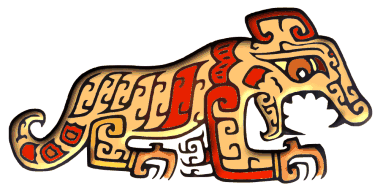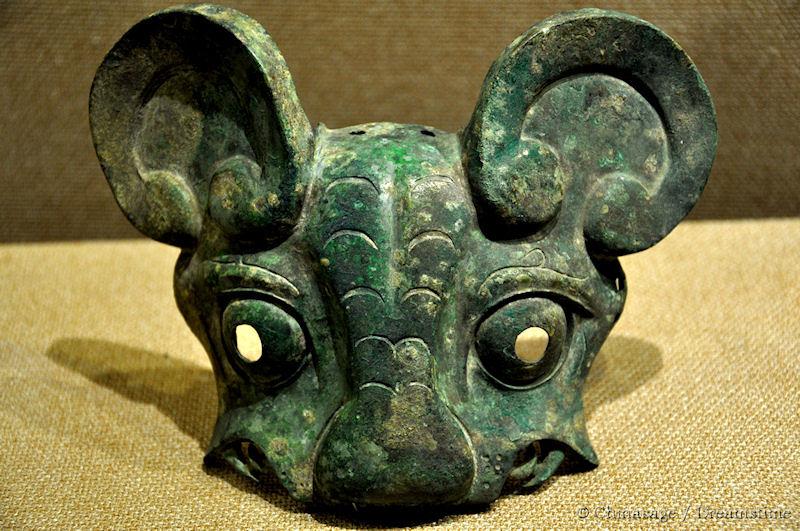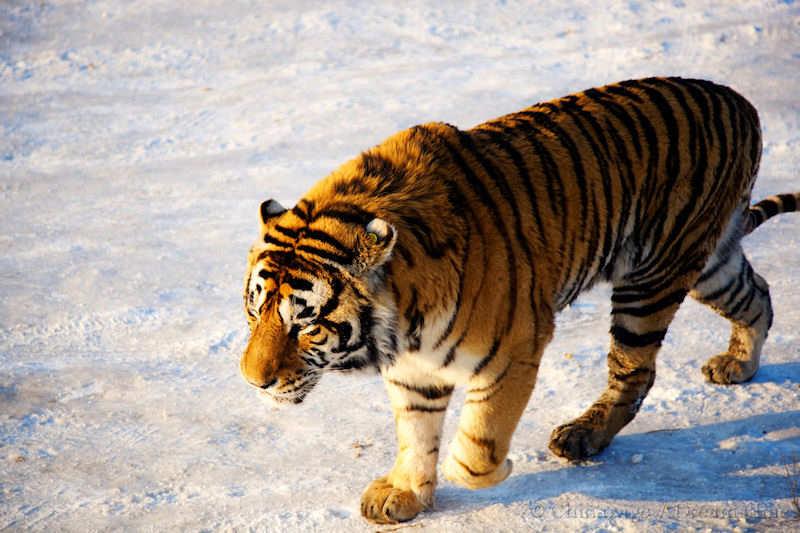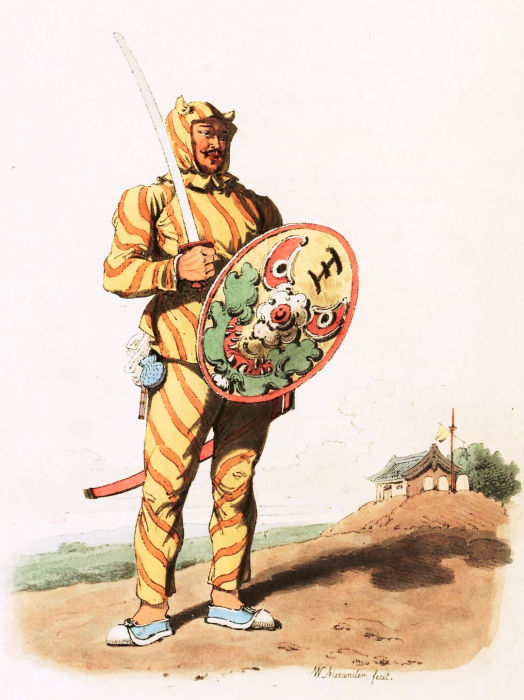Year of the Tiger

In Chinese astrology the tiger holds a position of honor as it is considered an animal of power and courage. People born in a year of the tiger are thoughtful, competitive and charming and may be destined for high office but at times they can be over-confident, selfish and offhand. They have difficulty accepting orders from others. Some say that the marking on tigers’ heads is like the character王 wáng for ‘monarch’ giving them a kingly bearing. A tiger’s fierceness and strength make them a suitable emblem for soldiers - including wearing tiger uniforms to frighten the enemy. It was also considered to have the power to keep away demons. The character for tiger is 虎hǔ sounds like 护 hù meaning ‘protect’ and so a tiger is a powerful protective motif. On its death a tiger's body was sometimes said to transform into orange amber (琥hǔ) precious stones in the ground. Rather strangely for such a fierce animal it can be regarded as ‘yin’ particularly when shown together with a dragon that represents ‘yang’.
Tigers used to roam widely in China. They proved useful in keeping the number of wild boars in check; but now there are only a few dozen Amur tigers in the wild in Heilongjiang province. A distinct South China tiger species was declared extinct in the wild over twenty years ago. A few Bengal tigers still live in Yunnan province on the border with Myanmar. Part of the reason for their decline is the use of their body parts in Traditional Chinese Medicine. As a tiger was supposedly never seen to limp, its bones have been used as an expensive ‘cure’ for arthritis.

Proverbs
Tigers feature in many Chinese proverbs (成语chéng yǔ), here is a selection:
The famous film title is taken from this proverb; it means there are people with great hidden talent who should not be underestimated. It may also describe a place with strong Feng Shui where the dragon and tiger are represented in the shapes of hills. The entrance to the valley of the Ming tombs near Beijing has Dragon Mountain to the east and Tiger Mountain to the west.
Used to indicate someone who is ignorant of the dangers involved in a project.
There is a story that once a fox followed up behind a tiger walking through the woods. The animals panicked and the fox claimed that this was because they were frightened of it not the tiger. So this has come to describe tricks when someone tries to appear more important than they actually are - riding on other’s shirt tails.
Describes a project that begins well but ends up badly.
Describes how gossip and rumors rapidly build up something trivial to become a powerful menace. The story is that Pang Cong in the Warring States period (472-221BCE) asked the King of Wei whether he would believe one person who claimed there was a tiger in the market place. He replied no. He gave the same reply if it was two people who made the same claim but the king thought that if three people said it then it must be true. Rumors are just rumors even if believed by many people.
When taking risks you have to live with the consequences, it is difficult to back down. An English equivalent is ‘He who sups with the Devil should have a long spoon’.

Taking on something beyond your ability - foolishly doing something over-ambitious and coming a cropper. It can be used to refer to someone who is over confident or arrogant.
To stare very covetously or enviously at something or someone.
This is a well-known story attributed to Confucius. In the time of the Warring States a woman who had lost father, husband and son to marauding tigers is asked by the great sage as to why she did not simply move away to somewhere safer. She replied that she preferred to live with the fear of tigers than live under an oppressive government.
A useful proverb to describe a situation where two strong characters cannot be expected to live contentedly under the other’s dominion.

Another proverb based on an old story. Feng Fu was a renowned tiger hunter from the state of Jin in the Zhou dynasty (around 3,000 years ago). After a successful career he vowed never to hunt anymore and moreover not hurt any living things. However when he happened to come across a local hunt for a vicious tiger he could not resist temptation to join in and killed the tiger single-handed. The proverb is used to express the view that people never truly change their character or in English ‘A leopard cannot change its spots’.
This is one of the most famous tiger proverbs and seems a suitable one to end on. It is also the hardest to untangle.
Some people say it came from an old story in which a horse and a tiger fought each other but neither could defeat the other, representing an unsatisfactory outcome with no clear winner.
Another explanation is when seeing a painting of an animal and not being at all clear whether it represented a horse or a tiger. So not a particularly good painting and the kindest critique is to say it looks ‘OK’. Another variant of this possible derivation is that the artist changed his mind halfway through drawing a horse and turned it into a tiger. This would suggest the artist wasn’t particularly enthusiastic about painting the subject, at very best lukewarm.
In modern usage it often describes a situation when things are neither good nor bad - merely ‘so-so’ or ‘mediocre’ or ‘fair to middling’. It can also describe someone who is not showing enthusiasm or taking sufficient care about what they are doing. In actual fact it is not used much in China, it has caught on among students of Chinese as it is the easiest of idioms to memorize.